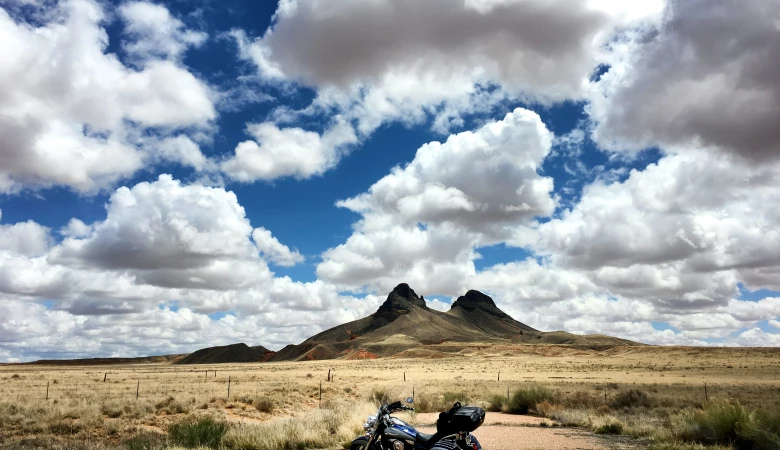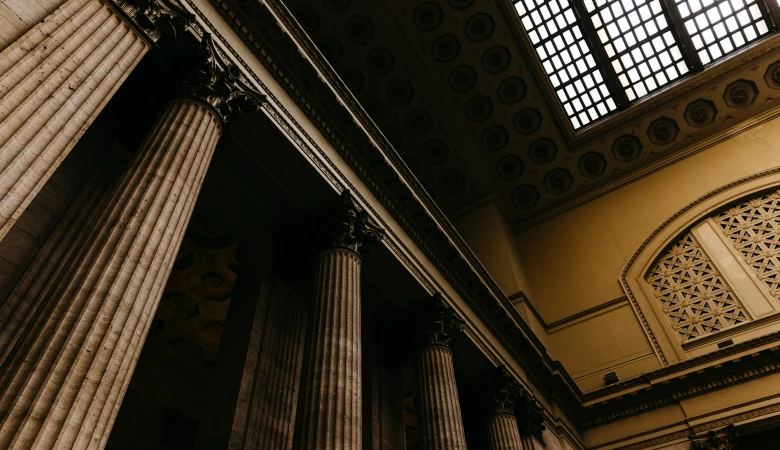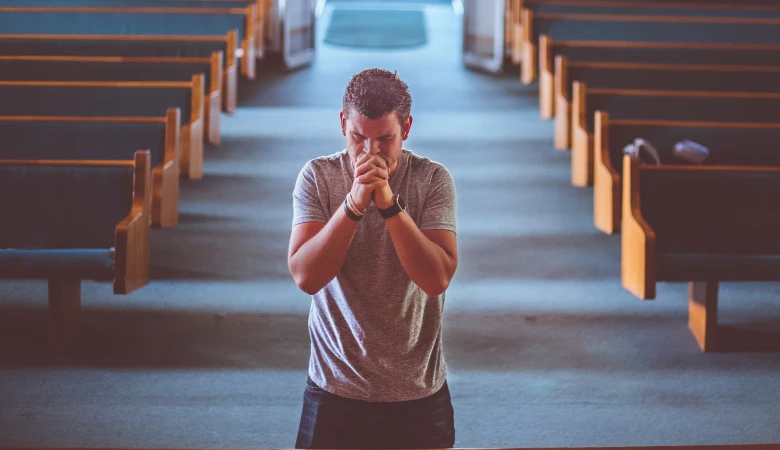Our Expensive and Fragile Freedom (Galatians Sermon 15 of 26)
April 06, 2014 | Andy Davis
Galatians 5:1-5
Christian Freedom, Works of the Flesh
Pastor Andy Davis preaches a verse-by-verse expository sermon on Galatians 5:1-5 and what it means that Christ has set us free and at what cost he accomplished this.
- SERMON TRANSCRIPT -
We have the privilege of turning back now to the Book of Galatians and we are immediately struck by this statement in Galatians 5:1, "It is for freedom that Christ has set us free." What is freedom? What do you think of when you think of freedom? Many people, I think, mis-define this in our culture. They don't really fully understand it. People think of it as the ability to do anything that you want to do whenever you want to do it. They see it as a complete severing of all shackles, and chains, and requirements, and boundaries. I'm thinking right now of the Australian Outback restaurant. "No rules," right? Have you ever seen that? I actually said to a waitress, "Would it be okay if I go back in the kitchen and make myself a sandwich? Would that be alright?" They looked surprised. Apparently, there are rules at the Australian Outback that you need to follow. But there's this sense of a yearning for freedom, a yearning to go wherever you want to go, and eat whatever you want to eat, and say whatever comes into your mind to say. That's how they define freedom. People define it as a yearning to win a lottery ticket, and be able to give your resignation the very next day from a job that you don't like, and then you just be independently wealthy the rest of your life.
Or think about students on the last day of school. I never forget that, fifth grade, just counting down the seconds until, at last, I could be free. Or think about, let's say, somebody that's graduated from college and has a whole summer to do whatever they want. Maybe they buy a EuroRail Pass, and they go and stay in youth hostels, and go wherever they want to go, and do whatever they want to do all summer long. They define freedom that way. Or perhaps a single person, who's free from marriage, and can pursue romantic entanglements with whoever they choose of the opposite sex. Or maybe a married couple, that both of them making a hefty income, but they're not bound down by kids. They have double income, but no kids. They're free in that regard. Or perhaps it's the individual standing on the north face of the Eiger in one of those aerodynamic squirrel suits. You ever seen those things? And they jump off, and they soar for four and a half minutes, until, hopefully, safely landing on the valley floor below. They're defining freedom that way.
Others define it perhaps more politically. They identify the 4th of July, 1776, with the Declaration of Independence and a new birth of freedom of a new nation, that then had to be earned on the battlefield. And five years later it was earned at the Battle of Yorktown. Or they define it with the freeing of the slaves after the Civil War, or the fall of the Berlin wall, or the peace demonstrations, and the freedom demonstrations in Tiananmen Square around that same time. People have all kinds of definitions of freedom. Now, the Bible has a lot to say about freedom. And as we come now, into a new phase of the Book of Galatians, we're going to be staring at this topic full on, and try to understand the freedom that Christ gave his life to buy for us.
What is Freedom?
What is that freedom? What is the nature of that freedom? Jesus defined it differently than all of the things I've been saying, because in order to understand freedom, we have to understand the bondage, the slavery that we were in before Christ came. And Jesus said it in John chapter 8, "Everyone who sins is a slave to sin. So, if the Son sets you free, you will be free indeed." Truly, truly free. To me, a real picture of freedom is Paul and Silas in the Philippian jail. They're actually prisoners, they're in chains, but they're singing at midnight with hearts that are set free by the grace of God, and they were more free than anyone, perhaps on the face of the Earth, at that moment. It has nothing to do with earthly circumstances or any of those things. It has to do with the relationship with Jesus Christ, the freedom that Christ alone can give, because the real bondage in this world is the bondage of sin, and Jesus alone has the power to break the chains of sin, and to set us free. But we need to understand the nature of that freedom. Is it freedom from all boundaries, and all constraints, and all restrictions, and all obligations? No rules no restrictions, no limitations? To be able to be, and do, and say, and own, and eat, and drink whatever we will, whenever we will? Is that it? I think not. If that's the definition of freedom, absolutely no boundaries, really, the freedom for self-definition, I would contend only Almighty God is free.
He (Almighty God) alone is self-existent. Everything else in the universe derives its existence from him. There can be no freedom that leaves God out of the equation. At the dedication of the temple, King Solomon was talking with a supernatural wisdom that the Spirit gave him, and he realized the limitations of the little, golden building that he had made for God, Almighty God, to dwell in. And as he was dedicating that, and as he was praying for that temple…I just loved this moment of reflection that comes on him. In 1 Kings 8:27, he said, "But will God really dwell on Earth? Heaven, even the highest Heavens cannot contain you. How much less this temple that I have built?" There is no container for God, no boundaries for God. There's no place you put Him and that's where he has to stay.
All of the universe depends on God, and God alone is free to define himself, and to be what he will be. All creatures have their boundaries, all of them, and that's why we have that language Jesus used in the Sermon on the Mount. Perhaps you've never thought of it before, but these little phrases He puts in there, He speaks of the birds of the air. Birds of the air. That's their realm. That's where they fly. Birds of the air. He speaks of fish of the sea. He speaks of the beasts of the earth. He speaks of the lilies of the field. Those little phrases talk about where they were placed by the Creator and what they are to do. An eagle soars through the air, because that's its proper domain. It feels its freedom by soaring through the air as it was designed by God to do. The dolphin swims through the sea and it feels its freedom there. A cheetah races across the field 70 miles an hour. It runs in freedom, because that's what it was made by God to do. A lily grows stationary in its place. It doesn't move, but it has a root system that sucks nutrients and moisture from the soil, and it grows up, and it's beautiful, and that's what it's free do by God. And so man also has boundaries. We are created to operate in a set of constraints. Salvation doesn't change that.
"All of the universe depends on God, and God alone is free to define himself, and to be what he will be."
Now, Satan, when he fell, challenged his position. He challenged his boundaries, and he didn't want to stay there, and he said in Isaiah 14, "I will ascend to Heaven. I will raise my throne above the stars of God. I will sit in throne on the Mount of Assembly, on the utmost heights of the sacred mountain. I will ascend above the tops of the clouds. I will make myself like the most high," but God cast him down to the Earth for his arrogance and his pride. Also, angels that fell with him did not keep, it says in Jude 6, their proper places, their own domain, but abandoned their proper abode, and so God consigned them to a pit, to be kept in eternal bonds, in darkness until Judgment Day.
Now, in the Garden of Eden, the serpent tempted man, male and female, with the same discontent of boundaries, "You will be like God," and we transgressed. I picture this like we jumped the fence. We went across the fence that God had set up. God had given us freedom. It says in Genesis 2:16 and 17, God said to Adam, "You are free to eat from any tree in the garden." There's the scope of your freedom. "You're free to eat from any tree in the garden, but you must not eat from the Tree of the Knowledge of Good and Evil, for on the day you eat of it, you will surely die." Now, some have asked, "Why did God give any prohibition at all?" It's because he's God, and we're not, and he wanted us to know that. He has the right to limit us. He alone is unlimited as the sovereign King of the universe.
Well, the moment that we transgress, the moment that we jumped the fence, and went where we should not go, and ate what we should not eat, at that moment, we became slaves with invisible spiritual chains on us. The essence of our bondage was in our hearts and minds. We hated God and we hated God's will for us. We chafed, and yearned, and lusted, and coveted, and hated each other, and we murmured, and we were churningly restless in our assigned place. Christ came to set us free from all that. He came to liberate us from that churning, and chafing, and lusting, and coveting. He came to set us free by enabling us to delight in our limitations, and our boundaries, and find joy within those boundary lines. As David said in Psalm 16:6, "The boundary lines have fallen for me in pleasant places. Surely, I have a delightful inheritance."
The Word of God describes our boundaries. The freedom that Christ gives is to allow us to run freely within those boundaries. As it says beautifully in Psalm 119:32, "I run in the path of your commandments, for you have set my heart free." God's law defines freedom for us and He enables us to run by the Spirit in the path of those boundaries. Now, we are a nation that delights in liberty and freedom. We celebrate it as part of our national ethos. It's part of our heritage, and we delight in that, and we should. But America, I believe, is full of people who define freedom wrongly. They define freedom as the ability to do whatever you want to do, whatever your heart drive is, whatever your heart desires. I think I would define freedom differently.
Biblically, the definition of freedom is the God-given heart inclination and power to do what is right according to God's Word. Simply put, to delight in God's law and fulfill it. That's freedom. That's true freedom and that's the freedom that Christ came to give. Now, as we come to Galatians 5, we come to a turning point in the epistle. We've had four chapters, Galatians 1-4, in which the apostle Paul is taking on and destroying a false gospel, the false gospel of the Judaizers. These were Jewish professors of faith in Christ, people who had... They claimed to be Christians, but they came to Galatia to these churches that the Apostle Paul had planted, and after he had left, they came in, and they brought a different gospel, which was no gospel at all. It worked like this: You have to believe in Jesus, plus obey the laws of Moses, in order to be saved, in order to be justified. It's a combination, but it was poisonous.
"Biblically, the definition of freedom is the God-given heart inclination and power to do what is right according to God's Word. Simply put, to delight in God's law and fulfill it. That's freedom."
Paul, in Galatians 1 and on into Chapter 2, establishes his authority to address the issue, says that he got his apostleship from Almighty God. And he says he also got his Gospel from God. And then he declares in Chapter 2, what that Gospel is, and what the heart of the Gospel is, which is Justification by faith alone, apart from works of the law, found in Galatians 2:16. And then in Galatians 2:20, "I have been crucified with Christ and I no longer live, but Christ lives in me. The life I now live in the body, I live by faith in the Son of God, who loved me and gave Himself for me." Now, that's the Gospel, and he defines it very plainly. And then he establishes the Gospel in Galatians 3-4, in both experience, and in Scripture. And he proves that this idea, this doctrine of justification by faith alone, apart from works, is not something he made up, it's nothing new. It's exactly what saved the believers in the Old Testament. And he proves that, and he goes through all of this biblical proof.
Now, in Galatians 5-6, he turns a corner to address this probing question, "How shall we now live? What kind of lives shall we live, now that we have been justified by faith?" And he raises... As always, people raise this question, "If we're completely forgiven by grace, apart from works of the law, doesn't that mean that we can just live a dissolute life of sin, and you'll be forgiven, and go to heaven? Is that what it means, that there's total immorality and it's going to be covered by grace? Does this mean we can sin as much as we want and get away with it?" And centuries of Christians have struggled with this question, and many church leaders have responded by instituting systems of morality, laws which have put boundaries around the church, and around the people of God. And they sought to restrain total exercise of Christian freedom.
But many of those approaches have resulted in a poisonous legalism, not much different from the Judaizers. That makes the next two chapters we're going to look at, pretty vital, to understand in the Christian life, "How shall we live as justified sinners? What kind of freedom shall we live out?" In Galatians 5-6, he's going to answer, "We live as free people, justified by faith in Christ, and who also live by the Spirit, a righteous, and holy, and upright life." This is the beauty of a true Christian life, but we don't live that life as slaves, who are trying constantly to earn God's favor by our obedience. We live it as adopted sons and daughters. We live the life of the Spirit, a life of freedom, yes, freedom from legalism, freedom from boundaries, and constraints, and laws that characterize the law of Moses. But freedom, also, to live a holy life, just as Jesus did, to delight in righteousness.
In Galatians 5, we are going to unfold the glories of the Spirit-filled life, and the answer to the fears that the doctrine of justification by faith leads to an immoral life of freedom from all constraint. We're going to see that there are twin dangers and we've talked about this before in the true Christian life. You've got a third rail on both sides of the road. And you've got legalism on one side, and that's one kind of bondage. And you've got license on the other side, and that's another kind of bondage. And both of them are found to be bondage in the New Testament. We either can be enslaved to a system of rules and regulations by which you're continually earning God's favor, legalism, or you're going to be enslaved to your own passions, and lusts, and desires, and unable to break free. And that's license, but they're both bondage. The truth is right down the middle.
I was with a relatively new driver some time ago, (I'm not going to say who or whatever the circumstances), but we were in one of those turn lanes where you're waiting, and it was a very heavy traffic, and we needed to be exactly right. Do you know what I'm saying? You couldn't be halves into the thing and you couldn't be too far over, that would be head-on collision. We had to be exactly right. And so it is here. We need to be right down the middle of a Spirit-filled freedom that leads to holiness, and a delight in God's moral law, because there's danger on both sides.
I. Our Blood-Bought Freedom
Let's look at it carefully now. We begin at verse 1, powerful opening statement, "It is for freedom that Christ has set us free. We're set free by Christ. He set us free." What an awesome thought. Christ delights in making slaves free. He loves to set the captive free. It is his joy to set you free from sin and that's what he came to do. He yearns to hear the cry of freedom, just as Yahweh, in Exodus 3, heard the cries of his people in bondage in Egypt and he came to set them free. And so also, Jesus has come. Now, we, in Adam, we are an enslaved race. If you're just in Adam, and not in Christ, you're a slave to sin, and to Satan. The Bible says this in First John 5:19, "The whole world lies in the power of the evil one." He is an evil dictator, a tyrant, a dominator, Satan, I mean. As we've already seen in John 8:34, sin itself is a tyrant, "Everyone who sins [said Jesus] is a slave to sin." Paul says in Romans 6:20, "When you were slaves to sin, you were free from the control of righteousness." We were slaves.
And the essence of slavery is compulsion, chains you cannot see, and chains you cannot escape. They're invisible spiritual chains, you can't see them, you can't escape from them. We felt the lash of the task master, just as the Jewish slaves did in Egypt, and we were dominated by Satan's clever and vicious poisonous temptations, and by our own fleshly nature that delighted in evil things. And we could resist some temptations, occasionally, but we couldn't be set free. We couldn't set ourselves free. And Paul uses the language of tyranny in Romans 5:21, "Sin reigned in death." Sin was a vicious tyrant.
Now, part of the bondage in the mind was the arrogance of independence. We had declared our independence from God, "We're going to live our own lives." And legalism came in, and connected with some categories of people, not everybody, but there's some people that know that they want to do better morally, but they're just every bit as much independent from God as they ever were. They are climbing a moral ladder up to heaven by their own efforts in keeping the law. It was still independence. They're lifting themselves up, and it's very devil-like. Like we saw in Isaiah 14, "I will, I will, I will ascend," and that's that moralistic legalism. But the depth, and power, and complexity, and sinister nature of Satan's bondage was hidden from our eyes, we couldn't see it. He had ensnared the human race in unbreakable cords of compulsion, we had no choice but to sin. And the essence of it was in the mind, and in the heart, as it says in Romans 8:7-8, "For the mindset of the flesh is hostile to God, because it does not submit to God's law, indeed it cannot do so." We couldn't keep the law, we hated it.
We were wrapped up in invisible chains and we could not break them. We needed a savior, and so Christ has set us free. It is for freedom that Christ came into the world. It was for freedom that Christ was incarnated by the Holy Spirit of the Virgin Mary. It was for freedom that Christ never sinned, so that he could give us righteousness. It was for freedom that he did these miracles of grace. It was for freedom he died on the cross and for freedom that he rose from the dead. For freedom, he did all of these things.
In Luke 11, Jesus was defending his miraculous ministry of driving out demons by the Word of his sovereign power. And they said, "It's by Beelzebub, the prince of demons, that He's driving out demons." Jesus basically said, "This makes no sense. How can Satan drive out Satan?" Actually, what's going on here, is Satan is like a strong, powerful man, fully armed, who's guarding his house, and all his possessions (that means people), and he's not letting anyone out. But suddenly, someone more powerful comes, and overpowers that strong man, and strips his armor in which he trusted, takes it away, throws it on the ground, and goes, and plunders his house. We are the plunder. He rescued us from the dominion of darkness and transferred us into the Kingdom of the Son he loves. We have been rescued by Jesus. He set us free.
Jesus said in Luke 4, at the beginning of his ministry, reading from Isaiah's scroll, He said, "I came to proclaim freedom for the captives." A couple of chapters later, in Luke 13, there was a woman. You remember her? She had been hunched over for 18 years by a spirit, it says, by a demon. And Jesus said to her, "Woman, you are set free from your infirmity." And she straightens up immediately for the first time in 18 years. And then they criticize him for doing it on the Sabbath. I think He did most of his miracles on the Sabbath. What do you think? "Is it Sabbath? Okay, time to get to work." I think he just loved doing that. But he loved setting this woman free from her bondage, to just set her free. And he says this, "Should not this woman, a daughter of Abraham, whom Satan has kept bound for 18 long years, be set free on the Sabbath day from what bound her?"
Well, friends, I believe that Jesus' miracles literally, physically happened in space and time. But they also give us a picture of the spiritual work He came to do, right? We can say, "I once was blind, and now, I see." "I was starving, but now, I eat." "I was thirsty, but now, I drink." Those are all not only physical, but they're metaphors for the spiritual work that Christ came to do. We were hunched over and bound up in sin by Satan. And Jesus came, and set us free. It is for freedom that Christ has set us free. And he set us free, ultimately, by His substitutionary death.
"We were hunched over and bound up in sin by Satan. And Jesus came, and set us free."
We are set free from the condemnation of the law. We are set free from the terrors of hell and death. We are set free from Satan's temptations. You know what? As a Christian filled with the Spirit, you never, ever need to sin again, ever. No temptation will ever come to you, with compulsion, with power, with authority to command you. You can tell them all to go away. You can resist them all by the power of God. You are no longer a slave to sin. Amen? That's your emancipation proclamation from Jesus. That's your Magna Carta of freedom. You are set free. You never, ever need to sin again, ever. Every temptation that comes your way can die. Now, they won't all die, because Romans 7 says that the flesh is powerful, and you're going to struggle, and you're going to need to confess your sins. We'll talk about that. But Christ has set you free, and we are free now, with hearts set free to delight in righteousness, and hate wickedness, and to run in the path of God's commands. And we have the freedom to love righteousness.
Look ahead at verse 6, "For in Christ Jesus, neither circumcision nor uncircumcision has any value. The only thing that counts is faith working through love." That's the freedom of a Christian. Our faith now, working through love to obey the commands of God. Christ died to give us this freedom, the most expensive substance, the most precious substance that has ever been, the precious blood of Christ, the lamb without blemish or defect was shed for sinners like you and me. But the second point I want to make is that this freedom is fragile and needs to be defended. It is for freedom that Christ has set you free. Stand firm then, and do not allow yourselves, again, to be burdened by a yoke of slavery. You've got to defend this freedom. You have to protect it.
II. Our Fragile Freedom
You get a picture... I get a picture in my mind here, of needing to just get a good footing under me, because it's like gale force wind. Picture yourself like a mountaineer going along a knife edge, going up to the summit, and there are these crosswinds blowing, and every step you take, if it's not rooted, you're going to get blown off the mountain to your death. Satan is just going to be blowing on you the whole time, one way or the other, toward license, or legalism, but you've got to stand firm on this issue of freedom, constantly. Like someone once said famously, "Eternal vigilance is the price of freedom." We've got to be constantly vigilant, or we'll lose this freedom, one way or the other. Legalism and license, they beckon, like grand chasms on the left and right, and we must stand firm.
Now, here I think, especially, he's having in mind the yoke of legalism. The Judaizers want these Gentile converts to bow their necks to their interpretation of the Christian life, with circumcision being the start of it. We'll talk about that in just a moment. But he says, "Stand firm and don't submit, again, to a yoke of slavery." Peter called it, in Acts 15, in the Jerusalem Council, "A yoke that neither we nor our fathers have been able to bear." Why are you trying to put that on the necks of the disciples? We couldn't bear it. It's a form of bondage, this legalism.
I want you to notice in verse 1, and this is an important point for you now to keep this in mind. If the Lord tarries, if we go on, perhaps generations from here, (this is true in every local church), every local church is responsible for the doctrine they're getting from the pulpit. You're responsible. If it's bad doctrine, throw the guy out. He's not talking to the Judaizers here, he's talking to the Galatians. Throw them out, don't listen to them anymore. Get them out of there. Say, "You have no right to teach us these things anymore." But like in 2 Corinthians 11, you're putting up with anyone who pushes themselves forward, or slaps you in the face, or puts you in some kind of bondage. He's talking about false teachers there. Don't put up with them. This is a vital principle of congregationalism. Local congregations are responsible for the teachers that they get. And if they're not teaching rightly, you need to be like a Berean, and take everything that is said back to the Scriptures, and be sure it's scriptural. And it's up to the church to get rid of false teachers. It's up to you.
"Local congregations are responsible for the teachers that they get. ... And it's up to the church to get rid of false teachers."
III. How Christ Can Become Worthless and Alien to Us
My responsibility is, during the time I have, is to get you ready to recognize false teaching from true, and to embrace and delight in true teaching, and to stand firm against legalism and license. How can Christ become worthless to you? And how can he become alien to you? Look at verses 2-4. There's a threat that, if you don't stand firm, that Christ would become worthless to us. Look at verse 2, "Take note, I, Paul, tell you that if you get circumcised, Christ will be of no benefit to you at all." He's saying, "Take note, sit up, notice. This is a severe warning. Galatians, if you walk under that door that says 'circumcision,' you walk through that door, you go ahead and let yourself be circumcised, you're going to go into a whole world of legalism. It's just the beginning. Circumcision's just the start. You're going to be walking into a whole world. You'll have to keep the dietary regulations. You'll have to keep the laws for special days, and months, and seasons, and years, and festivals, and all of those things. You'll have to uphold the animal sacrificial system. You'll have to go to Jerusalem three times a year and other things besides. You'll have to follow the Sabbath regulations according to the priests and what they say.
But even worse than all that, the whole time you're doing that, you'll be thinking like a slave, and not like a son or daughter. That's the worst part of all. You'll be thinking the whole time, you've got to earn God's smile, you've got to earn his affection, you've got to earn his love, or he's going to kick you out. You'll be thinking of him wrongly the whole time.
Now, I want to remind you, Paul says in verse 3 what the law was. We've already been through this, but I want to remind you. Look at verse 3, "I declare, again, I declare to every man who lets himself be circumcised, that he's obligated to keep or obey the whole law." He already said this, remember back in Galatians 3:10? He says, "All who rely on observing the law are under a curse, for it is written, cursed is everyone who does not continue to do everything written in the book of the law." As we said back then, "All the law, all the time, or you're cursed by God." Well, no one wants to be under that. This is a terrible, a terrible slavery. It's actually a form of debt. Verse 3 in the KJV, I love this, it says, "For I testify, again, to every man that is circumcised, that he is a, [listen to this,]"a debtor to the whole law." You owe the law, whole law. And Christ would be of no profit, but rather, the person has a debt they have to pay off. More on that in a moment. And he says in verse 4, "You who are trying to be justified by law have been alienated from Christ, you've fallen away from grace."
Now, once this legalism takes root, we no longer stay close to Christ. There has come a separation from us and Christ. Remember that Christ said, "I am the vine and you are the branches, if you remain in me, and I in you, you'll bear much fruit. Apart from me now, you can do nothing." Grace is the life-giving sap that flows from our union with Christ, to enable us to flourish and bear fruit for the Glory of God. There's an ongoing sap that needs to flow, a life through the Spirit, through Christ's death and resurrection, and by his Spirit. He is moving in us to obey God's moral law, to love God with all of our heart, and love our neighbor as ourselves. He's moving in us to do that.
He didn't remain high and aloof up on his judgment seat, his arms crossed…Always picturing him like, "Here's the law, do it. Here it is, do it. It's up to you and you're on your own." You have a sense that you're on your own. That's the whole legalism thing. He's not going to lift a finger to help you. That's not the Gospel. Jesus became incarnate to help us, and then gave the Holy Spirit to live within us, to help us, because apart from him, we could do nothing. The legalism thing, it's like an expert athlete telling a bunch of young people to do what he did. Picture Michael Jordan, coaching a middle school basketball team, sitting the team down. He's so frustrated with the way they played in their last game, and he puts on videos of himself, "Come Fly with Me," or something like that. He says, "Do that!" I'm thinking, "I can't do that!" And all he is just angry, and yelling at them all the time, because they're not doing what he did. This... It's not a good analogy... life of a great basketball player. Jesus did live a perfect life, but he does not stand and say, "Now, I did it. Now, you do it and its up to you." That's not it, that's legalism.
Rather, picture a father and a son playing with Legos, and the father says, "Okay, it's time to clean up." Now, he can go one of two ways. He can say, "Son, you're capable of cleaning these Legos up. I'm going to give you 10 minutes or you're going to get the biggest spanking you've ever gotten. I'm going to sit there and watch you." Well, look, I'll tell you, that son may do it or may not, but what is he feeling the whole time that he's putting all those Lego blocks away? He's living in fear. But suppose, instead, the son looks up and says, "Daddy, will you help me?" He says, "Sure," and he gets down, and sits cross-legged, and he says, "Tell you what, I'll do the red ones and the blue ones. You do the yellow ones and the white ones. And we'll have a race," is a whole different feel. It's a great illustration from John Piper, and ever since I heard it, I love that, the picture of God, in Christ, in the Holy Spirit, getting down with us and obeying his own law, fulfilling it in us.
Now, in verse 4, we have a phrase that's caused a lot of people trouble, "Fallen from grace." Have you ever heard that before? "Fallen from grace." I was raised in the Catholic church, and in Catholic theology, there's this idea that if you commit a mortal sin, you'll fall from grace. And if you die outside of grace, you go to hell. That's what they teach. Arminian theology, like John Wesley, and all the Methodists, teach that you can lose your salvation, and they'll point to this expression of "fallen from grace." Both systems employ this phrase to describe falling from grace and the implication is, you can lose your salvation. That's not what this verse is teaching, not at all.
Can I say straight out, that if you have received the gift of God's sovereign grace, and as a result of that, have been born again, and are justified by faith, that will never change. No one who's born again ever dies spiritually, and no one who is justified, and declared not guilty by the judge of all the earth, will ever have that reversed. That's not what's happening. Either you're in God's grace or you're not. Either you're light or you're darkness. But the question is your own thinking about your Christian life, and if you have been justified by God's grace, by his mercy, by simple faith, and then later, you think you now need to hold on, or make progress on your own, by yourself, you have, in your own mind, stopped thinking about grace. You're not dependent on Christ anymore. You're relying on yourself, just like he said in chapter 3, "You, having begun by the Spirit, are you now perfected by the flesh?" You're trying to work it out by yourself, you've fallen from grace, alienated from Christ.
No, no, no, you're a branch and he's the vine. Stay close to him, depend on him, pray to him, ask him every moment for help. That's what he's talking about. It doesn't mean you can lose your salvation. I love the verse in John 6, "This is the will of him who sent me. I've come down from Heaven, not to do my own will, [Jesus said] but to do the will of Him who sent me. And this is the will of Him who sent me, that I shall lose none of all that He has given me, but raised them up at the last day." He's not going to lose anybody. You can't fall from grace, if that's what that means, it can never happen. But the grace of God actually has transformative power and you need understand that. It isn't just to get you justified. The same grace sanctifies you day by day. God's grace is powerful in a Christian. Remember, how Paul said, "By the grace of God, I am what I am, and His grace, to me, was not without effect." That's a great understatement, isn't it? "Oh, his grace, to me, was not without effect. No, no, no, I worked harder than all of them, yet, not I, but the grace of God in me." God's grace is powerful inside a Christian.
IV. Eagerly Awaiting Righteousness through the Spirit
John Piper talks about something called the debtor's ethic, I don't have time to go into all of this, but here's the idea. Right now, right here, where you stand in your Christian life, you can spend your life looking back at what Jesus has done and say, "He has paid a huge price for me. I owe him everything. Now, as I look forward, I got to spend the rest of my life paying it off." Have you ever felt that pressure? Somebody invites you over to eat and you feel the pressure to invite them back? Somebody gives you a gift and feel a pressure to give them a gift, as much, or maybe, even a little more than the one they gave you. You know what that is? That's just pride. In effect, you're saying, "Alright, Jesus, thank you for all that you did. I realize I couldn't have done it without you, but okay, I got it now, and I'm going to try to pay that back. I'm going to try to pay it back." Then salvation becomes like a mortgage and you got to make daily payments off it, you know what I'm saying? Payments of thanksgiving, payments of evangelism, and payments of good works, and all that. You got to pay it down and you'll never pay it down. And you're just going to keep being, it's debt bondage, is what it is. You know what debt bondage is? It's where, after slavery became illegal, the owners of the plantations, like sugar plantations, got real clever, and they gave big chunks of money to poor people to come and work on the plantation, and they couldn't leave until that money was paid off. Well, those poor people, maybe never had so much money in their lives, would use it to pay off other things or whatever, they didn't have the money. They were just no different than slaves from then on. They're paying off a debt they can never pay.
That is not the Christian life. We don't live with a constant "thank you" debt we have to pay. I'm saying we should say, "Thank you," but that's not how we live. What we need to do is say, "Lord, you have been gracious to me. Up 'til now, I have feasted on that grace. Now, give me more. Every day, I want to go deeper in debt to grace." You're going to anyway, because apart from him, you can do nothing, right? Just acknowledge it and say, "Give me more. I need more grace. I need more and more grace. I've got challenges I'm going to face today, challenges of my flesh, challenges of Satan in the world. I've got your law and I want to live up to it. I want to follow. God, give me more grace, more and more grace." I'm not paying off a mortgage here. It's a whole different way of looking at it. Instead, verse 5, "By faith, we eagerly await through the Spirit, [look at this] The righteousness for which we hope." Isn't that beautiful? That's the Christian life. By faith, not by works, but by faith. We, through the Spirit, relying on the Spirit, we are eagerly awaiting for a hoped for perfection, righteousness. And we're yearning after, aiming for perfection through the Spirit by faith. That's the Christian life. That's not legalism or license. That's Christianity, is what that is.
V. Applications
What application can we take for this? Well, first of all, just ask, "Do you know this freedom? Are you a free man, free woman, free boy, free girl, are you? Have you come to Christ? Do you know that your sins are forgiven through faith in Jesus?" You've heard the Gospel here today. I'll say it again, God sent his son, born of a virgin, lived a sinless life, died a substitutionary death, rose from the dead on the third day, and if you trust in him, repent, and believe in him, you'll have eternal life. You don't have to leave here a slave. You can be as free as any veteran Christian, somebody who's been a Christian for 20, 30 years, equally free to them right now. Trust in him, ask him to save you, call on him. You don't have to move, just in your heart say, "I know I'm a slave to sin, free me Jesus," and he will, absolutely.
And secondly, as Christians, are you living a life of freedom, or have you slipped in one bondage, or another? Are you legalistic? Do you feel like every time you sin, you have to do something to earn God's favor again? Or do you say, "I need more grace. Forgive me, again, I need more grace." As you face the challenges of life, are you doing it on your own, like you're paying off a mortgage, or are you looking to him, and saying, "Give me more grace. I've feasted at your table of grace. I need another meal. I need to feast again. Jesus, give me more grace," and embrace your responsibility to fight for freedom. You've got to fight for this freedom. You're going to drift toward legalism or license at every moment. Satan's going to be pulling you. There's a crosswind blowing left to right, or right to left, but it's going to try to blow you one direction, or the other. You have tendencies in one direction or the other. You probably have legalistic tendencies or you may have license tendencies, but there's going to be that crosswind. You need to embrace the fight to be free from both, through the Spirit.
And embrace your responsibility, to be sure you're getting good teaching from the pulpit, and from the teachers here. Take everything back to the scriptures, like Bereans. Now, there's a right way to do that and a wrong way to do that. Okay, it could be that you're wrong. Bring it up and ask respectfully, but just know that this church is responsible for the preaching ministry and the teaching ministry. Embrace your responsibility and fight the debtor's ethic. Don't ever think, "I have to do this to pay back Jesus." You'll never pay him back, and everything you're doing, this you're doing, he's giving it to you anyways, as a gift by grace.
Everything you do puts you deeper in debt to Jesus into grace. And he's fine with that, because he is infinitely wealthy. Fight the debtor's ethic and learn how to obey, step-by-step, by the Spirit. Close with me in prayer. Father, we thank you for the beginning of Galatians Five. There's so many things to learn in this incredible chapter. I pray that you would be working right now in this sanctuary by the Spirit, setting people free, maybe for the first time through the Gospel, or maybe they needed to hear this message. They've been drifting toward legalism, or drifting toward license, and they needed to be set free again, to get back to a life of holiness by faith through the Spirit. I pray it would happen, in Jesus' name, Amen.



























